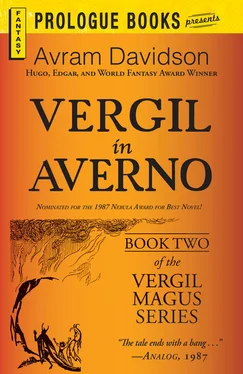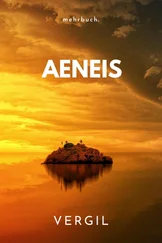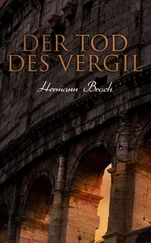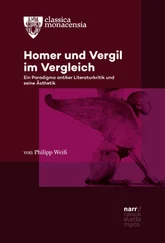Avram Davidson - Vergil in Averno
Здесь есть возможность читать онлайн «Avram Davidson - Vergil in Averno» весь текст электронной книги совершенно бесплатно (целиком полную версию без сокращений). В некоторых случаях можно слушать аудио, скачать через торрент в формате fb2 и присутствует краткое содержание. Жанр: Фэнтези, на английском языке. Описание произведения, (предисловие) а так же отзывы посетителей доступны на портале библиотеки ЛибКат.
- Название:Vergil in Averno
- Автор:
- Жанр:
- Год:неизвестен
- ISBN:нет данных
- Рейтинг книги:3 / 5. Голосов: 1
-
Избранное:Добавить в избранное
- Отзывы:
-
Ваша оценка:
- 60
- 1
- 2
- 3
- 4
- 5
Vergil in Averno: краткое содержание, описание и аннотация
Предлагаем к чтению аннотацию, описание, краткое содержание или предисловие (зависит от того, что написал сам автор книги «Vergil in Averno»). Если вы не нашли необходимую информацию о книге — напишите в комментариях, мы постараемся отыскать её.
Vergil in Averno — читать онлайн бесплатно полную книгу (весь текст) целиком
Ниже представлен текст книги, разбитый по страницам. Система сохранения места последней прочитанной страницы, позволяет с удобством читать онлайн бесплатно книгу «Vergil in Averno», без необходимости каждый раз заново искать на чём Вы остановились. Поставьте закладку, и сможете в любой момент перейти на страницу, на которой закончили чтение.
Интервал:
Закладка:
He had done them all correctly.
He always did.
But it was well to be in practice, and besides: such splendid practice! such splendid exercises! And such splendid, splendid patterns!
After that he simply selected a scroll at random, raised the upper part of his jointed bed and fixed it fast with the rod behind and beneath, saw that the lamp was well, and retired. He folded the scroll as he unrolled it, so that each column was folded full-face clear, back-to-back with another column, so as to save the trouble of rolling (and unrolling) the scroll whilst he was reading it; began to read.
. . unexpectedly they were invited, in fact constrained, to join in a procession to the temple of Jove in Alexandria Olympia, where the Thunderer was worshiped under the Syrian name of Haddad. The procession had been organized at the first sign of bad weather by the local dyers’ guild, for, they say, the thunder affects the dyes in the great pots if the mordant has not already been — He was seized with a great start, in fact really something like a brief convulsion; the scroll shot from his hands and he sat bolt upright, the coverlet kicked off -
Asleep? Certainly he had not fallen asleep, out of habit he had turned the sandglass over as he began reading and the first few grains were just trickling through. What book was this?
He examined the label attached to the scroll’s tubular case. Seneca On the Four Cardinal Virtues? Hardly; clearly a mistake…. He got up and collected the fallen scroll, of course he had lost his place, well, well, he would find it again, and…. It was certainly not Seneca on any thing, it was a fragment of, well, the gods knew what it was a fragment of, of something he had never seen before, so how came it here? Its text was not on the first wooden roller ever supplied it. Its text had been clipped and trimmed and glued and not recently, for the few marks left of the last letters on the part clipped off were quite impossible to decipher, by reason of who knew how many years of fingers — often greasy, often heavy, laboriously tracing the lines; how did it begin? It began, so the Esthish people who dwell by the Wendland Sea in a corner of the North, when they begin to winnow grain, address these words to the wind, O Wind, O Wind, O Heavenly Child. O Wind, O Wind, O Heart of Great Joy …
Vergil fairly hastily yet fairly carefully went through the rest of the scroll; it was the memoir of travel of a Roman knight who had gone north after some precious commodity, amber, perhaps, and who had recorded not only every ounce purchased, and the price, but also, seemingly, every proverb he had ever heard and every way station at which he had heard it. But as to those other lines which Vergil had read but a moment before, lo! not once did they appear …
Nor anything like them.
Nor did he find them in any other book in his cabinet nor on his shelf. And neither could he recollect ever having read them before in his life. Anywhere.
He set aside the scroll and its case with the errant label, let the bed-rod down and got into bed again, drew the cover up, blew out the light, snuffed the smoldering wick with moistened fingers, murmured a prayer, and slept without waking once, and without a single dream.
• • •
Averno was not very far as the crow flies, but it was a byword that not even a crow, scarcely the most delicate of birds, would wish to fly to or even near there; for “They be smudged black already” and “Them folk there begrudge them corby-crow a carcass, even”; and suchlike sayings, and more. But men went to Averno, and went often, even if not all men; and some came thence, too. It was but a short time after finishing the house of Aurelio (the mortar, made specially after Vergil’s own new-formed formula, might indeed prove better than the one commonly made; it would certainly prove as good, he would check it from time to time. . decade to decade. . for he had, he hoped, built the house to last forever: and so it might: barring quakes of the instable earth or some immense great overblast of Old Vesuvio. . or the Death of Rome come flying down upon it) — it was but a short time after finishing the house that Vergil had encountered a certain street scene of a morning. It was in between the old and the new wharf sections of the town port that he saw the man with a string of pack animals, laden down with, no doubt, madder and carmine and saffron and woad, indigom and hyacinth. Some fool of a lean-shanked fellow with stubbly cheeks had given a hoot, and, “ Averno! Pho!” had cried. And held his nose. The crowd guffawed.
The Avernian merchant or dye-master (they were often the same) might have passed for a caricature of himself and his class in an open-air burlesque at a festival: fleshy, in travel-stained clothes he had not bothered to get washed, and mounted on a dark and dingy mule. He showed no anger, but, pressing his knees against the beast’s flanks, he had raised his massive rump a trifle from the saddle, and, having said the while, “Since you hold your nose at me, here is something to hold it for,” broke wind with a great noise.
The crowd’s mood changed in an instant; they were all (for once) on the Avernian’s side, roared their approval loud, and hooted the holder of the nose, who growled and sneered, but all the same took care to slink away at once. As it all pleased the populace and had certainly hurt him not, Vergil would no more than have shrugged, had this not brought the matter into his mind yet one time more. The prospect of Averno did not attract him, had never attracted him, and even now (he thought) very much did not attract him. But many things were not attractive that nevertheless needed to be done; it seemed to him, fairly of a sudden, that he might as well go to Averno, for, as witness this last incident, Averno seemed prepared to come to him.
And this prospect pleased him even less.
Much, much less.
“A horse? For sure a horse,” said Fulgence the liveryman. “For how long, a horse, the master?”
Vergil considered. “Surely not more than a fortnight.” He hoped.
The liveryman’s face, all expectation at his answer, whatever his answer might be, now changed. Brows flew up, eyes bulged, mouth flew open, hands flew out. “Ah, then the master will not want …” He paused, he licked his lips. Again scanned his customer, decided that perhaps after all he would not try to impress by a guess. “So. Is it that the master may want a nice bright filly for ambling up and down the streets? Or maybe the master wants something. . for show, not . . not a filly; a good sturdy mare, mayhap? or a gelding? For, maybe, the mud and dirt, the roads to trudge, the farms to see?”
“I am going to Averno.”
One more slow lick the liveryman gave his lips, the while he looked from side to side as though for witnesses to this incredible statement; but witnesses there were at the moment none, for the swipes and hostlers were gathered round a handsome stallion in a corner of the yard. The man took a breath. He held it. Let it out. Looked about once more. Shrugged. Gazed up as though the god-actor, descending from the hoist-machine in the amphitheater, would yet come down to save him. But — as he himself might have put it — a god from the machine there was not.
“Well, what is it, Fulgence, man, what is it?” Vergil was becoming impatient at this play.
“What is it? What it is? Heh-hem! Is going to Averno, says the master, says, and wants to know” — here control began to slip and voice to rise — ”Jove, Apollo, and Poseidon! ‘What is it?’ asks he! Is this: For one, for Averno, not a horse would be, but a mule. Is this, for another, so here are no mules, none. Mules, here, are not. Childs of whoring mares are mules, and in my stable have, I wouldn’t.” Several of the children of the whoring mares lifted their heads in adjoining stalls just then, displaying their characteristic ears, as though astonished to hear the morals of their mothers impugned and indeed their own very presence denied. Vergil grinned. The liveryman cursed. “The mules (some hangman stable boy brought in against my willing) — the mules I curse.” He broke off to explain and to excuse, and stooped as though for a stone to sling at them, a search somewhat handicapped by the fact that his hands, being both clenched into the position called the fig, with each thumb thrust between the next two adjacent fingers — a gesture sovereign and remedial against the evil eye in general, as well as specific spells and cantrips — his hands thus arranged were hardly capable of picking up stones to cast at mules, existent or otherwise. And at this moment when he was realizing this himself, and his dismay at the position becoming fast impossible to conceal, and the position itself already impossible to conceal — at this moment, concealed in yet another stall nearby, an ass began to bray: perhaps an epithalamion. The liveryman danced up and down in a hysterical ecstasy of helplessness and rage.
Читать дальшеИнтервал:
Закладка:
Похожие книги на «Vergil in Averno»
Представляем Вашему вниманию похожие книги на «Vergil in Averno» списком для выбора. Мы отобрали схожую по названию и смыслу литературу в надежде предоставить читателям больше вариантов отыскать новые, интересные, ещё непрочитанные произведения.
Обсуждение, отзывы о книге «Vergil in Averno» и просто собственные мнения читателей. Оставьте ваши комментарии, напишите, что Вы думаете о произведении, его смысле или главных героях. Укажите что конкретно понравилось, а что нет, и почему Вы так считаете.












